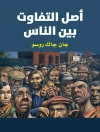This pivot examines non-governmental organization (NGO) interventions in two community development initiatives, namely social capital and community empowerment, and their role in funding and formulating development frameworks in developing countries like Bangladesh. It considers the key development discourse issues of collective action, social trust and access to knowledge, to political processes and to financial, social and natural resources. Given the large proportion of foreign funding, NGOs and donors also increasingly face the twin challenges of demonstrating both efficient and effective delivery of services and accountability in their relationships with various stakeholders. Reflecting on the relevance of NGOs for community development, and the merits, challenges and limitations of NGO activities, this book provides a comprehensive study of NGO participation in community development in Bangladesh and Third World countries more widely to highlight a global concern with international implications.
Tabela de Conteúdo
1. NGOs in the development discourse.- 2. Bangladesh and the emergence of NGOs for development.- 3. Globalization and indigenous knowledge: NGOs’ role for development.- 4. Community development facet in social capital and community empowerment.- 5. NGOs and social capital in Bangladesh.- 6. NGOs and community empowerment in Bangladesh.- 7. NGOs and community development in Bangladesh.- 8. Challenges for social capital and community empowerment: Local dynamics, global pressures.
Sobre o autor
Dr Rezaul Islam is Professor in Social Work at the Institute of Social Welfare & Research, University of Dhaka, Bangladesh. He is also Visiting Senior Lecturer, Department of Social Administration & Justice, Faculty of Arts & Social Sciences at the University of Malaya, Kuala Lumpur.












